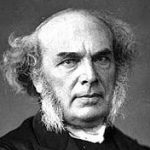Lesson Focus: This lesson is about seeing Christ for who He really is and then seeing everything else in light of that reality.
Why Beliefs Matter: Colossians 1:9-12.
[9] And so, from the day we heard, we have not ceased to pray for you, asking that you may be filled with the knowledge of his will in all spiritual wisdom and understanding, [10] so as to walk in a manner worthy of the Lord, fully pleasing to him, bearing fruit in every good work and increasing in the knowledge of God. [11] May you be strengthened with all power, according to his glorious might, for all endurance and patience with joy, [12] giving thanks to the Father, who has qualified you to share in the inheritance of the saints in light.
Paul’s prayer is best understood as taking up the two themes of knowledge and power. The use of the word all is particularly revealing. Paul prays that the Christians may be filled with the knowledge of his will in all spiritual wisdom and understanding, and also that they may be strengthened with all power.
[9-10] The realm of knowledge. We may surmise that an exciting promise of the visitors was that those willing to accept a further initiation at their hands would come to enjoy a deeper insight or knowledge of the things of God. But Paul will have none of it. In Christ, his friends at Colossae had already received full knowledge. It is just because, in Christ, the Christians already have access to the privilege of this full knowledge of God, that Paul can pray for them that they may be filled with it. If conversion to Christ had not brought with it this decisive understanding, then it would be reasonable to teach the need for some further initiation, and thus to occupy the same sort of ground as the new teachers. Paul does not ask for the Christians a new knowledge, however, but rather the proper use of what is already theirs in Christ, so that they can better discern the will of God for their lives. In Paul’s gospel the goal is no mystic awe-inspiring apprehension of divine mysteries reserved for an elite. It is rather an intelligent grasp of what the will of God demands in daily living. It is in order to understand how the will of God translates into the everyday business of living in a complex world that the Christian needs all spiritual wisdom and understanding. There is no conceivable way for anyone to reach verse 10 except through verse 9. How does Paul expect a Christian to lead, or conduct, his life? The three descriptive phrases in verse 10 are characteristic of the apostle at all times, but seem to have a special place in his letters from prison at this particular time. First, Christian living is only that which is worthy of so great a Lord and Master. The obedience Christians practice must be sufficient to give the world an adequate picture of their Lord and His purposes for mankind. Secondly, Christian living is that which is fully pleasing to Christ. We need to study God’s pleasure by searching out His likes and dislikes as He has revealed them in His Word. Thirdly, Christian living is that which, through the knowledge of God, is constantly bearing fruit in every good work and increasing in the knowledge of God. Here the emphasis is on the essential link between right beliefs and righteous conduct. An awareness of God’s gracious acts towards us should lead to many gracious acts from us towards others. The evidence God looks for is not so much spiritual as practical. Special knowledge leads usually to conceit, whereas the knowledge of God should lead to love for others rather than for ourselves.
[11-12] The realm of power. Paul’s request is for the empowering of ordinary Christians with all power, according to his glorious might. The purpose for Paul’s request for power is for all endurance and patience with joy. In the real world, the Christian needs all of God’s almighty power steadily to continue and persevere despite the suffering, opposition, shocks and disappointments that must at times be his lot. It is through great endurance that the servant of God commends himself. By it he learns to hold his position under attack, and quietly to persist in the paths of righteousness and truth. Through patience the Christian learns forbearance and self-restraint, especially with the people who test him; he also finds here the secret of steadiness when divine promises and hopes are deferred. It is of the utmost importance, if we are to understand New Testament spirituality, to see that such experience of God’s power is an absolute requirement of the normal Christian life. This qualification to share in the inheritance of the saints in light means that all the conditions have been met which entitle a person to claim his full standing as an enlightened member of God’s chosen people. With the forgiveness of sins, he has been allotted his place in the inheritance of the saints. Now Paul thanks God not for their entrance into a future inheritance but for their present qualification for it. And he will not allow them to be disqualified. The Lord Jesus Christ is now their portion, and there can be no richer inheritance in this world than that. Because of the gospel of justification by grace alone, through Christ’s death alone and by faith alone, the unassailable verdict of the last day, ‘Accepted’, can be heard and depended upon here and now.
Who Christ Is: Colossians 1:15-20.
[15] He is the image of the invisible God, the firstborn of all creation. [16] For by him all things were created, in heaven and on earth, visible and invisible, whether thrones or dominions or rulers or authorities–all things were created through him and for him. [17] And he is before all things, and in him all things hold together. [18] And he is the head of the body, the church. He is the beginning, the firstborn from the dead, that in everything he might be preeminent. [19] For in him all the fullness of God was pleased to dwell, [20] and through him to reconcile to himself all things, whether on earth or in heaven, making peace by the blood of his cross. [ESV]
Paul launches out into a great description of Christ that can only be introduced in this lesson. It had not occurred to the Colossians that to welcome this new teaching was to be disloyal to the old. It seemed to them an exciting fresh revelation of truth taking them on from Epaphras’ beginnings. Paul sees in this dangerous innocence a failure to understand what belief in Christ, and loyalty to that belief, involves. It is therefore his wisdom to set before the church, right at the start of the letter, an exposition of the supremacy of Christ. This positive instruction, once its implications have been grasped in terms of the sufficiency of Christ, will be the Colossians’ best protection against error. There are three important clues as to the significance of the statement as a whole.
1. The first clue: the connection between the supremacy and the sufficiency of Christ. The theme of this letter is the sufficiency, or adequacy, of Christ as Savior. This means that no other spiritual power whatsoever is necessary to bring to mankind God’s full and final salvation. What was happening in Colossae was that the Christians seemed ready to deny the sufficiency of Christ for all their spiritual needs, and therefore, in practice, to deny the supremacy of Christ to which they were already committed. It is for this reason that Paul drives home the lesson that just because Christ is the supreme Lord He must be a sufficient Savior. He urges the Colossians to remember who Christ is. On such a basis he them calls upon them to recognize what such a Christ does for them. The connection between Christ’s supremacy and His sufficiency is a vital clue for the student of Colossians. Possessing preeminent authority, Christ must be a perfect Savior. His sufficient adequacy depends on His supreme authority.
2. The second clue: the connection between Christ as Creator and as Redeemer. If the source of the universe, as well as of the universal church, is to be found in Christ [16] then we owe to Christ our physical existence and joys, just as much as our spiritual life. Thus both the material and the spiritual realms are brought firmly under the sovereignty of Christ. In view of this, the student of Colossians will look with special care for those tell-tale signs of the dualism in thought and practice which was threatening the young church. It seems certain that among the new teachers were the first of a multitude of guides who, often unwittingly, have troubled the Christian church ever since, by making a false distinction between the two realms, sometimes called ‘secular’ and ‘sacred’. By so closely linking the truths of verses 15-17 with verse 18, Paul unites what ‘religion’ so often divides. With this clue in our possession, parts of the Colossian letter that might at first sight baffle us, more easily yield their meaning.
3. The third clue: Christ, before time, on earth, and over all. One unmistakable aim of this great confessional statement is to tell us who Christ is (note the repeated he is in verses 15-18). When Paul writes of Christ to the Colossians he wants them to know that it is the full Christ, Creator, Redeemer and ascended Lord, of whom he speaks. He wants them to know that all the activity of almighty God in creating the world and in visiting and redeeming His people, has been done in and through Christ. So that in Christ the young believers in Colossae occupy a position of privilege beyond which nothing can be conceived. This resolute refusal to divide God’s work from Christ, or to divide Christ in respect of the various parts of His work, gives us a clue we need to recognize two forms in which ‘fullness’ teaching may have reached Colossae. It may have been by a claim that God had not finished His work of salvation for the Colossians in giving them Christ, so that He had still more to give them if His work was to be completed. But the second form of the false teaching may have taught that the benefits of Christ’s saving work on the cross was one thing, but that to receive and enjoy the benefits of His reigning work at God’s right hand was quite another. To be cleansed from sin was a blessed beginning; but to be delivered from sin’s power they must now claim and appropriate the victory of the ascended Lord over the principalities and powers. To be fully saved the Colossians were urged to make the full Christ their own. Against both of these forms of erroneous teaching Paul’s testimony stands unshaken. He teaches first that what God has done in Christ exhausts all that God has to do for us. He teaches, secondly, that when a person is in Christ, he or she is the beneficiary of all that God has done in Christ [see 2:9-10].
What Christ Has Done: Colossians 1:13-14, 21-23.
[13] He has delivered us from the domain of darkness and transferred us to the kingdom of his beloved Son, [14] in whom we have redemption, the forgiveness of sins. [21] And you, who once were alienated and hostile in mind, doing evil deeds, [22] he has now reconciled in his body of flesh by his death, in order to present you holy and blameless and above reproach before him, [23] if indeed you continue in the faith, stable and steadfast, not shifting from the hope of the gospel that you heard, which has been proclaimed in all creation under heaven, and of which I, Paul, became a minister. [ESV]
[13-14] This great work of deliverance was achieved at the cross, and every single man and woman in Christ shares in that triumph. In Him we have redemption. That is, we have been liberated, or released from bondage. We could not otherwise call ourselves Christians, for this redemption is nothing else than the forgiveness of sins. In Paul’s teaching, forgiveness must include the breaking of the power of sin which holds people in servitude. It is inconceivable that God should forgive the past, and then send us back incapable of living a new life. Pardon without deliverance would be a mockery, and it is never so contemplated in the New Testament.
[21-23] If the new teachers were the precursors of those who, down the years, have sought in various ways to complete the justifying work of God’s saving grace in people’s lives, we know that one effect of their teaching is to diminish the importance of the initial experience of conversion. Many teachers of a ‘second experience’ come to see this further initiation as the really significant change in a person’s life bringing them fully into fellowship. That something like this was happening at Colossae is suggested by the extraordinary emphasis laid by Paul throughout this letter on the unique value and significance of that great spiritual change which people call variously by such words as conversion, justification, regeneration and reconciliation, and which is marked by Christian baptism. For Paul baptism is unrepeatable just because the divine work it signifies is unrepeatable. In a word, incorporation into Christ is always regarded by Paul to be incomparable. (1) What you once were [21]. All people are known by a mentality that is naturally antagonistic to the truth of God. Evil deeds are the inevitable result of an evil heart, and persist in every human culture and reappear in every new generation, presenting man in society with his most intractable problems. (2) Where you now stand [22]. From the desperate position of verse 21 the Colossians have been rescued. Now they enjoy peace with God. Through Christ’s death, they stand in God’s presence holy and blameless and above reproach before him. An important question here is whether Paul is using the language of justification (this would refer to their standing, as accepted by God into His family), or of sanctification (this would refer to their actual state, as people of exceptional moral excellence). The reasons for interpreting verse 22 as descriptive of justification are strong ones. (a) Reconciliation is something God has achieved through Christ once and for all. The Colossians have no part in that achievement but to accept it thankfully. They are now reconciled. (b) The place where this great change took place was at the cross, and not in their hearts. It is an act right outside themselves that made them holy people. (c) The verb to present was used in legal language, meaning ‘to bring another before the court’. Brought before the divine Judge the now reconciled Christian is found to be without reproach, stain or fault. Despite past estrangement it is possible for the new believer immediately to live his life in God’s presence. This is the language of justification. What a contrast this is! What a change of position! Can anything be remotely comparable to this transference from darkness to light? And the change of position is always accompanied by a change of heart. The reconciled man is a new man in Christ. Now he loves and reverences the God he formerly distrusted. And he who loves the Lord comes to hate evil. (3) How you must go on [23]. The position the Colossians occupy before God as acceptable people depends upon one condition: continuance in the faith. This continuance is then defined as faithfulness to the gospel. The gospel is then defined as: (a) The gospel they had already heard, i.e. which had already proved itself to be living and powerful. (b) The gospel the world was also hearing, i.e. which had already proved itself universal. (c) The gospel Paul had received and served, i.e. which had already proved itself to be apostolic. The duty of the Colossians to this gospel is expressed in fine words, whose precise meaning epitomizes the appeal of the whole Colossian letter. (1) They are to be stable, literally, established or well-founded in the truth. (2) They are to be steadfast which means loyalty to the truth by which they were saved. (3) They are not to shift. A unique New Testament word, it literally means that they are not to be dissuaded from the hope of the gospel. To continue in the faith is to be content with the gospel that first saved and delivered us from spiritual death and estrangement with God, and brought us straightaway to live in His presence, at peace with Him. It is to base our lives and our teaching upon the apostolic doctrines of grace. It is for those whose confidence that they are reconciled is in Christ’s work for us, not in Christ’s work in us.
Questions for Discussion:
1. Paul is writing to a church where false teachers are telling them they need a “second experience” in order to experience the fullness of Christ. Why does Paul pray for ALL knowledge and ALL power for them as they fight against this false teaching? In verse 10, Paul gives instructions on how to have a deeper experience with Christ. What are the three things the Colossians (and every believer) are to concentrate on? How can you follow Paul’s instructions in your own Christian walk?
2. In 1:15-20, Paul writes a great hymn of praise on the supremacy of Christ. What three clues does Paul give his readers in order to understand the greatness of Christ? Why is the correct biblical understanding of the sufficiency of Christ the best protection against doctrinal error? How can you grow in your understanding of the sufficiency of Christ?
3. In 1:13-14 and 1:21-23, list all the things Paul writes that Christ has done for His people. Take time this week to meditate upon the meaning and significance of this list for your spiritual life. What is the importance of the IF statement in verse 23? Why did Paul include this statement in his description of what Christ has done for believers? How can we continue in the faith? What must we do in order to be stable and steadfast in our faith?
References:
The Message of Colossians & Philemon, R.C. Lucas, Inter Varsity.
Colossians, Philemon, Richard Melick, Jr., NAC, Broadman.
The Letters to the Colossians and to Philemon, Douglas Moo, Pillar, Eerdmans.

















